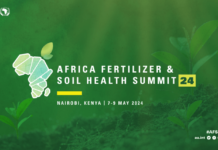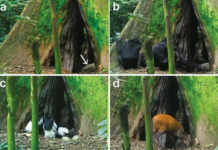“ We need to uplift each other as Africans so that no country can suffer from hunger”, emphasised the Minister of Agriculture and Food Security Onyoti Nyikwec at the recent Invest in South Sudan roadshow held at Sandton Convention Centre.
This was the final leg of the Invest in South Sudan Roadshow, which had previously been held in Washington DC, New york and Dubai.
At the event, South African Chamber of Commerce and Industry (Sacci) and the South Sudan Investment Authority (SSIA) signed a memorandum of understanding in terms of which Sacci committed to business collaboration with the South Sudanese business community.
South Sudan, the world’s youngest country after it gained its independence from Sudan in 2011, is one of the most food insecure places on earth. Around 6.1 million or 60 per cent of the population suffers from extreme hunger, according to UNICEF.
Minister Onyoti Nyikwec told delegates that 95% of South Sudan’s 648 000 km2 was suitable for agriculture of which 50% was prime land with soils and climates suitable for production of “cash crops”.
However, only 4.2% of prime land was under cultivation, which is dependent on the country’s average 500 mm to 1 800 mm rainfall a year.
Nyikwec pointed out that the country was rich with surface and ground water resources and that development for irrigation was essential for further development.
The country has a 11.7-million-strong cattle herd, with 12.3-million sheep and 12.6-million goats, which posed untapped commercialisation opportunities.
About 32% of the land is covered in timber-rich forests, while the country’s current wild fishery output is 140 000 t/y, with a potential of 200 000 t/y.
Opportunities for agriculture include agroprocessing plants for different varieties of crops and fruits, the production of honey, sugarcane, cotton, tea and coffee, as well as Gum Arabic processing and marketing, the construction of agromechanical training workshops and the establishment of research centres for pest control.
Additional opportunities include quality seed production; sorghum, maize, sesame, rice, nut, and sunflower production; as well as tractor assembly plant establishment and pesticide production projects.
Speaking to Farmers Review Africa the agriculture minister agreed that the situation in the country was “very dire” but not to the extent of famine. “It is in the stage of major food crisis, but also threat of hunger this year (because of) lack of rain last year,” said Mr Nyikwec.
He also cited pest infestations, particularly the fall armyworm, which infected crops across South Sudan in 2017. The FAO developed aUS$26m five-year plan last year to tackle the problem.
“Our land is more fertile, we don’t use fertilisers, and we do organic farming. The world now needs organic vegetables, so we’ll be attracting good investors,” he added.
South Sudan’s six ecological zones would provide ample opportunity to cultivate coffee, maize and cassava and the country aims to distinguish itself by growing only organic produce.









